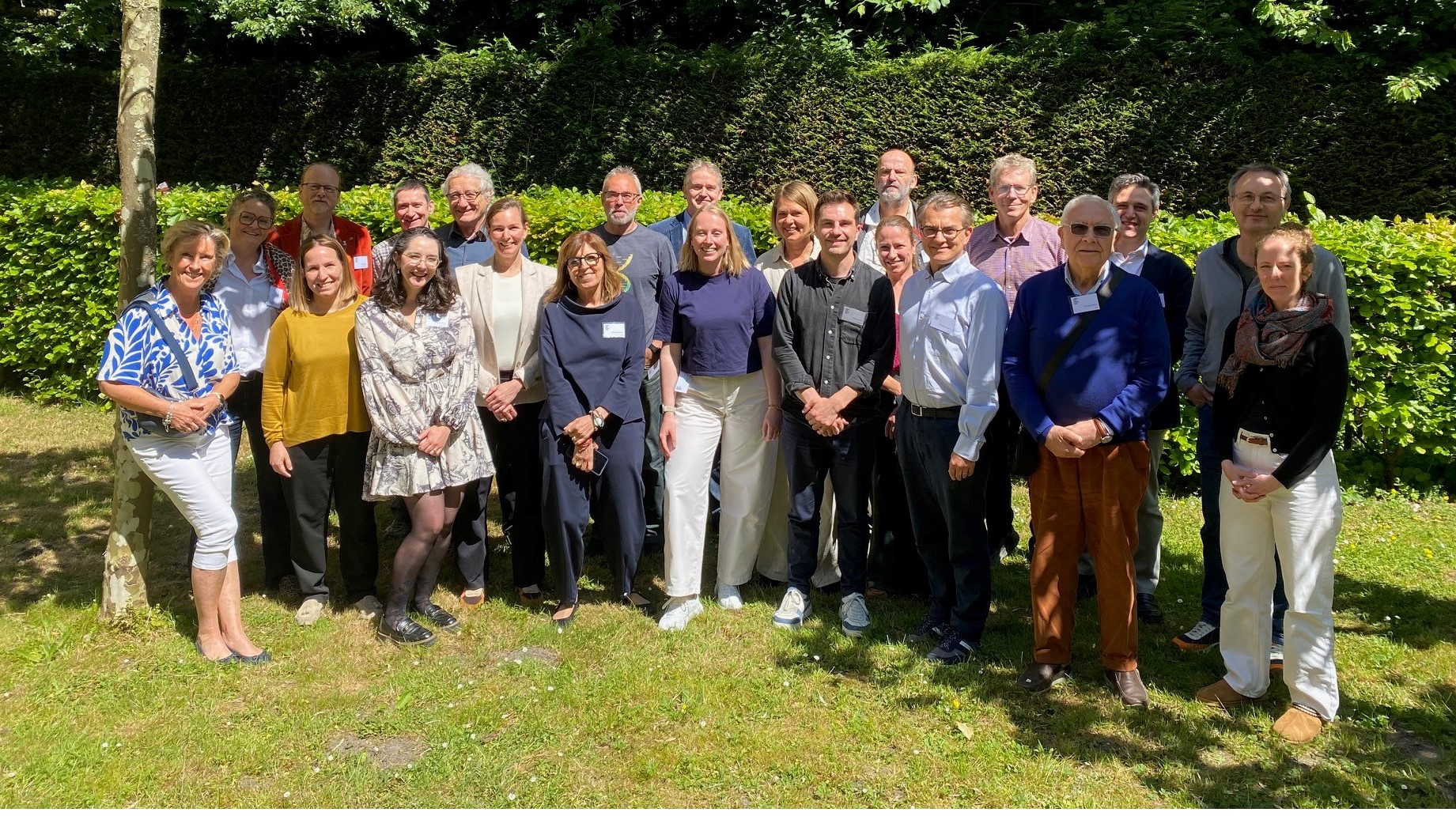Towards better diagnosing, understanding and treating gastrointestinal symptoms in myotonic dystrophy
- Number 288
- Date 16 May 2025
288th ENMC International Workshop:
Location: Hoofddorp, The Netherlands
Title: “Towards better diagnosing, understanding and treating gastrointestinal symptoms in myotonic dystrophy”
Date: 16-18 May 2025
Organisers: Dr. H. Braakman (The Netherlands), Prof. L. Pastorelli (Italy), Prof. G. Meola (Italy) and Prof. B. Schoser (Germany)
Early career researchers: J. Peterson (United States), S. Scholten (The Netherlands)
Translations of this report by:
German by Dr. F. Kleefeld
Italian by Prof. G. Silvestri
French by Dr. D. Furling
Swedish by Dr. A. Ekström
Spanish by Dr. A. López Castel
Dutch by S. Scholten
Participants: Dr. H. Braakman (The Netherlands), Prof. L. Pastorelli (Italy), Prof. G. Meola (Italy), Prof. B. Schoser (Germany), C. Gibson (patient representative) (Belgium), P. Ashley (patient representative) (United Kingdom), A. Geille (patient representative) (France), T. Borowsky (patient representative) (Germany), Dr. F. Kleefeld (Germany), E. Petitclerc (Canada), Dr. T. Cooper (United States), Prof. D. Monckton (United Kingdom), Dr. D. Furling (France), Dr. G. Bassez (France), Prof. G. Silvestri (Italy), Dr. E. Michou (Greece), Dr. L. Miele (Italy), K. Gerrits (The Netherlands), Dr. A. López Castel (Spain), Dr. S. Klinkenberg (The Netherlands), Dr. A. Ekström (Sweden), Dr. L. Nguyen (United States), Prof. I. Merkies (Curaçao & the Netherlands), L. Orriëns (The Netherlands), J. Peterson (United States), S. Scholten (The Netherlands)
Background and aim:
In myotonic dystrophy type 1 (DM1) and type 2 (DM2), not only muscles but also other parts of the body can be affected. Gastrointestinal problems - such as abdominal pain, constipation, and diarrhea - are common. It is not yet known what causes these symptoms or why they vary significantly from person to person. Currently, there is little focus on or knowledge about these problems, which makes it difficult to recognize and treat these symptoms.
This workshop aimed to:
- Understand how common gastrointestinal problems are in DM, what they are like, how serious they can be, and how they affect daily life
- Explore what causes these problems and how to detect and treat them
- Develop a guideline to help doctors include gastrointestinal problems as part of regular care for people with DM
- Create a practical and straightforward questionnaire to monitor symptoms over time and evaluate the effects of treatment(s)
Workshop outcomes:
The workshop confirmed that gastrointestinal symptoms are common in children and adults with DM. Various parts of the gastrointestinal system may be affected, causing symptoms such as difficulties with chewing and swallowing, reflux, nausea, bloating and vomiting, gallstones, abdominal pain, diarrhea, constipation, and involuntary loss of stool. These issues are often underdiagnosed, even though they greatly impact the daily life of patients and their families.
Due to a lack of knowledge of these problems, symptoms are often not recognized or treated properly. This can lead to unnecessary and even risky interventions. Since gastrointestinal problems vary between patients and can even change within one patient over time, tailor-made care is necessary.
Experts shared insights from clinical experience, research findings, and animal studies. This will result in practical recommendations and the development of tools to map and monitor symptoms over time.
What it means for patients and families:
This workshop is an important first step towards improving care for people with DM, especially for those who suffer from gastrointestinal symptoms. It raises awareness about the frequency and impact of these symptoms and helps doctors to better recognize and treat them.
Next steps:
- Together with patient representatives, a list of 10 questions will be created that can be asked in the consultation room to identify whether a patient is experiencing gastrointestinal symptoms.
- A guideline will be developed for the treatment of various gastrointestinal complaints as well as determining when and to whom patients should be referred.
- A screening instrument will be developed to record gastrointestinal symptoms and measure changes over time, during treatment, or in a clinical trial.
- In addition to the recommendations for anesthesia in patients with DM, treatment advice for gastrointestinal emergencies will also be included in the SOS card of patients.
Workshop outcomes will be shared at the 2026 International Myotonic Dystrophy Consortium meeting as well as through patient organizations and expert websites.
A full report is published in Neuromuscular Disorders (PDF).

